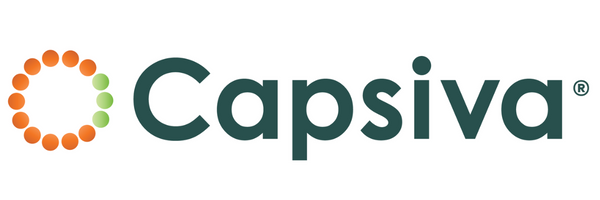
How to Reduce Neck Pain and Stiffness
Share
You never truly realize how flexible and strong your neck has to be until you’re stuck with neck pain and stiffness.
Our necks contain bones, muscles, ligaments, and tendons that all work together to support the head and our body movements. Because we use our necks throughout the entire day.
Common Causes of Neck Pain
Before jumping into relieving neck pain, it’s beneficial to understand exactly what is causing the pain. Some serious diseases and injuries could be causing your neck pain, such as a herniated disc, cervical osteoarthritis, or meningitis.
In this section, we are going to focus on the more common, everyday causes. Depending on your lifestyle at home and at work, reducing neck stiffness and pain could be much simpler than you think.
Routine Muscle Strain

This mostly stems from bad posture and unhealthy habits. One of the most common causes we hear is people spending too much time looking at a computer while at work. If your computer is not set up at eye level and with the proper ergonomics, it can leave you with an extremely sore neck.
We also are starting to see a lot of neck pain that is directly associated with the use of cell phones and other handheld devices. People either have their necks craned forward as they look down or they’re holding a phone between their shoulder and ear.
Additionally, people who have jobs that require long periods of driving can be more susceptible to muscle strain. Turning the head side to side repeatedly and bad driving posture can both cause a stiff neck and shoulders.
Sleeping Arrangements
From your sleeping position to the style of mattress and pillows you have; a lot can go wrong throughout one night. Investing in a high-quality mattress and pillows will go a long way in helping you reduce neck pain.
It’s also important to make sure you are sleeping on your back or side. If you have only slept in one position for most of your life, this small change could make all the difference.
Whiplash
Falling or any type of sudden impact that pushes your head to the side can certainly lead to a muscle strain or soft tissue sprain in the neck. If you’re experiencing neck pain and dizziness after a head injury or falling, you could be experiencing symptoms of a concussion and should see a doctor immediately.
Excessive Stress or Anxiety
While stress is not typically the main cause of neck pain, it can certainly heighten the symptoms of existing neck pain. Stress has long been known to influence how people feel pain. If you find yourself under a lot of stress at work or home, pain can feel worse.
Now that we have covered some of the more common causes for neck pain, it’s time to take a look at things you can do for pain relief.
Self-Care for Neck Pain
Anyone who has experienced neck, shoulder and back pain has been offered plenty of free advice. Whether it’s the office chair that will fix all your problems or a list of essential oils, there is an abundance of tips and tricks available to you.
The tricky part is trying to sift through them all to see what pertains to you. To help you with this, we’ve compiled the most effective and simple things you can do to reduce your neck pain and get back to your normal routine.
Rest
Rest is still the most effective cure to a sore or stiff neck. While we understand that sometimes our lives don’t have time to rest, do your best to clear time out of your schedule and relax. However, we recommend limiting rest to one or two days as too much inactivity can actually weaken your muscles.
Cold and Heat Therapy
Using a combination of cold therapy and heat therapy is another efficient way of reducing pain in your neck. For the first two to three days, apply ice directly to the pain to reduce swelling and inflammation.
Following that, use a heating pad to apply moist heat to your neck. Alternatively, taking hot showers also helps in the recovery process.
Gentle Stretching and Strengthening
As long as the pain is not too severe, doing some gentle exercises and stretches will do wonders for your neck’s recovery.
Simple things like rolling your shoulders back and forth or squeezing your shoulder blades together several times will help release tension and stretch out your muscles.
Be careful not to overstrain your neck, though. If at any point you feel it is too painful, keep your head stable for another day or two until you can regain some of the flexibility.
Over-The-Counter Medicine
For a quick fix, various OTC medications are available for purchase in-store and online. From topical gels and creams to spray-on relief and oral medication, you will have your choice of products.
OTC pain relief can be very helpful when you still have to be active and busy with a sore neck. These products can help reduce and relieve some of the wear and tear that comes with being out and about all day.
Professional Options

As we stated earlier in the post, if your pain is severe and debilitating then you should see a doctor. At the very least, the prescribed medications they will give you will be more effective in reducing the pain. Moreover, you will want to make sure that what you might think is a sore neck is not something worse.
If you’re stuck between going to a doctor and self-care, there are still other options. Sign up to get a professional massage for neck pain or enlist a family member to be a personal (and gentle) massage therapist.
Additionally, many places offer physical therapy for neck pain and stiffness. If you are or begin to experience chronic neck pain, we would recommend exploring options to see a physical therapist.
Additional Tips for Avoiding Neck Pain
We’re almost to the finish line! Now that we’ve covered the causes and remedies of neck pain, how about learning how to avoid it altogether? Most neck pain comes from bad habits and oversight.
By slightly altering a few things in your daily routine, you’ll notice an immediate impact on how your neck feels. Let’s go over a few:
- Develop an Ergonomic Workplace: Having to sit for eight hours staring at a computer is bound to make your body cranky and creaky. Make sure your chair and desk are adjusted so your computer is at eye level. While you’re sitting, make sure your arms are level to the desk and your feet are flat on the floor. Once an hour, make yourself take a break to stand up, stretch, and move around.
- Don’t Be Dumb with Your Smartphone: We know we can’t tell you how much time to spend on your cellphone, but there are a few things we have to tell about how to use it. First and most importantly, hold your phone at eye level. It might not feel natural, but constantly staring down at your phone is unhealthy for your neck, shoulders, and back. Also, use earbuds or headphones to avoid holding the phone between your shoulder and ear. Additionally, take hourly breaks if you must be on your phone at all times and take the time to stretch and relax your muscles after using it.
- Change Sleeping Situation: We briefly mentioned it before, but it’s worth noting again. You’d be surprised at how much a bad mattress, pillow, or sleeping position can impact your body. Everyone has fallen asleep in the wrong position and woke up in pain. While ensuring that doesn’t happen is important, there are also options to buy mattresses and pillows specifically designed to help with neck and back pain.
- Reduce Stress: Whether it’s finding ways to reduce stress at work or taking a much-needed vacation, keeping your stress levels low will go a long way in avoiding neck pain and stiffness. Listen to music or commit to a few minutes of meditation at work. Take a break and walk to the local coffee shop.
Now that you’re equipped with these tools and tips, it’s time to put them to use! Start by ordering Capsiva, a natural pain relief gel that shuts off your pain receptors right at the source. We are available for purchase on our online store, Amazon, and in select retail locations.
